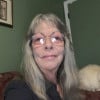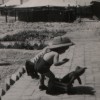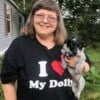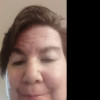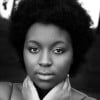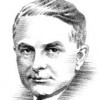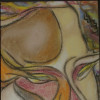Does anyone have any tips for beginning to write poetry?
Does anyone have any tips for beginning to write poetry?
I haven't written very many poems in my life. It's just not something I'm good at, but I would like to get better. Thank you!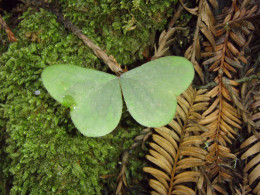
Write! Do not self- criticize. You are the poet who has not already been written!
I think it will help you a lot to study poetry formats. Wikipedia has a good article on poetry formats and styles. I have been writing poetry since I was a child, however, I never really wrote good poems till I started a serious study of poetry history and styles And I read a lot of poetry written by the masters: Yeats, Poe, Burns, Dickinson, Shakespeare, and many others. I still read a LOT of poetry and write a lot of poems.
Start with your emotions. Then move on to nature. Put them together and you have a poem.
Each poem a person writes, they put their soul into it.you are so right i feel the same way great feedback for him yes i do understand the emotion part of poetry because i enjoy what i do . I do think that writing poetry has me thinking about writing my own book for a change so my soul has helped me ....
Poetry does not have to rhyme, is the first thing. The second is to find a moment in your life that you feel so strong about that you just have to share it. Here's an example of poetry based on your question.
Poems, I've never written,
only words I've spoken.
Magical as they are,
my words will not speak back.
I never knew that my thoughts,
could become my poetry.That is a very creative answer. Is it like impressionist paining...it's OK to break the rules....wait there are no rules???? How do you judge good poetry from bad poetry? Are there rules?
What tarkishat wrote is 'free form' - she is right, poetry does not have to rhyme. Free form is more like just your thoughts/emotions without a strict format to follow. There are rules though if you write formal types of poems. I love free form.
Yes, there are rules. The rules depend upon what type of poem you're writing.
Hi listen to the feedback that you are getting from people they are giving you a part of an amazing journey ahead of you i could not have expressed it any better cause when i am doing poetry i really feel it and it becomes me so i put my emotions into action.I believe you will get the hang of things start working on short paragraphs first just to see how you do on paper and then put your work our their we are hear if you need help.
Thanks Lisa, Hubbers have been really helpful. I think I needed some encouragement for letting loose. I like how poetry has made me focus on every word.
Jen, I can just reverberate what has been said. If you want, check out some of my poetry eg. "if I could write a love poem"; "Windows of Rainbows", "Space Shanty", "A Midnight Rendezvous", "Crazy Words" or "When the World Explodes" for some different examples or the hub: "So You Can't Understand Poetry" etc.
I'll have to check those out. I poked around in your work and discovered your Halloween poem--super fun!
When I first started writing poetry I read all the master poets of the past and learned what I liked, what felt good within me that would touch my emotions, heart and soul. Then I began studying all the different poetry formats (sonnets, odes, free form, rhyme, epic and many more). Look up "Poetic form" on Wikipedia and study till you find what feels good within you. The sonnet is my favorite format to go by. It may seem confusing at first, but will not take long to understand. The thing to remember is that if you write a poem and say it is a sonnet, or another form, it must follow that method.
I have a few poems on my account. You are welcome to read them for part of your study. Favorite poems I wrote are "Lavender Nostalgia" and "Shadowy Dreams". There are many other good poets on HubPages: Jodah, Romeos Quill, Manatita, Gypsy Rose Lee, so many. Read them and get a feel for different styles. I suggest you find a style you like and stick with it till it feels like you were born with the gift of poetry. Then start branching out, or stay with what you like best.
Go to http://hubpages.com/topics/books-litera … poetry/604 to review all hubs on poetry. Keep in mind that not all of them follow a strict format. Read Emily Dickinson, Elizabeth Barrett Browning, Edgar Allan Poe, Robert Frost, Oscar Wilde, William Butler, so many master poets of the past.
After a short while you will begin to feel a poem within you and it will just flow out.
I wish you much success.Strangely enough, Poe wrote love poetry. Of course, it was to his cousin. I never could see the merit in Robert Frost's work, and yes, I have studied it. I must have read Out Out a hundred times. I think it should be called Ouch Ouch.
I just write what comes to my mind naturally. I don't think about it. I get a first line in my head and it flows from there. I don't follow any specific pattern other than what comes from my heart, emotions, and observations.
Poetry is very personal. Trust your instincts and let them flow.I like what you said about trusting your instinct. It's like you should FEEL if a word isn't right.
Poetry is all about feeling and feelings. That's why I don't follow a pattern. I follow my heart. Discounting the poetry book I self-published, four of my poems were published in anthologies. I might add, none of them were rhyming poems.
You're already writing poems so I guess the spark is within you, that's always a good sign. Keep it up and let your feelings be your initial guide. From feelings come a few words, a sentence, an adjective or two, an emotional reaction written down. Once these 'sparks' are down on paper then the real work of the poet begins. The poem has to become a form and that form has to be true to the meaning (or not!) of the whole. It's an art form, it's intuitive, it is sometimes a mystery and sometimes a lot of work!
If your aim is to become a better poet then I suggest you read as much as you can. Read everything and anything poetical, from Shakespeare to Billy Collins, from Emily Dickinson to Marianne Moore. Read the poems of your immediate contemporaries here on HP and elsewhere. Reading the work of other poets is the first step in learning and improving. This will allow you to put your own poetry into perspective.
If you read and read you'll discover something about the history of poetry, learn about its evolution from a purely spoken form to rhyming verse and on to more modern free verse via poets like Walt Whitman, William Carlos Williams and TS Eliot...on up to powerful female poets such as Sylvia Plath and Anne Sexton. You'll become familiar with the world of poetry.
You might think about joining a poet's group, online or in the flesh, and have someone critique your work - be careful though because some poets are very sensitive and hate having someone criticise their beautiful creations!!
I wish you all success.Thanks! I read many of the suggestions here, then wrote my first poetry hub. It was a lot of fun.
- RTalloniposted 11 years ago
0
In order to become more familiar with what works in poetry you might try reading and studying good children's poetry. "Favorite Poems Old and New" would be a great place to start looking over classic work that has helped countless children grow up to know and understand the heart of poetry. http://www.amazon.com/gp/product/038507 … 0385076967
I find that poetry for little ones can inspire me more quickly than most anything else when I want to spark up my creativity. I've written tons of poetry as an adolescent--only to learn that it wasn't poetry per se upon reaching college, rather that it was lyrical prose!
With that said, I wrote a hub many moons ago on exactly that:
http://dohn121.hubpages.com/hub/tips-fo … uct-a-poem
Another suggestion is to read the poetry you aspire to write.
Just trying to help
Ok, let me set the record straight on poetry. I have been writing poetry (and short stories) since I was 11 and performing original work since I was 12/13. The previous user comments make sense but there are several reveals I will bequeath to you in my experience.
For one, before you even start writing or continue to write, you need to assess the "kind of poet" you want to be. Do you envision yourself as a page poet who only works and experiments with forms (intended for publication) OR do you see yourself as a performance/slam poet who decides to just remain in free or blank verse/stream of consciousness.
Determining this will put to rest in your own mind what goals you want to achieve. Are you typically shy in front of crowds and do you make it your best effort to avoid public speaking? Are you open to criticism on the spot from a writing group or audience? If you said yes to the first question and no to the second, your best bet is to write for the page strictly.
The other thing is - to you want to write topically or emotionally, or both? Most slam/performance poets write topically - about race relations, sex, pressing current events, etc. Others, who attend open-mike events or writing circles will get experimental and talk abstractly with their emotions at the forefront. Slam poetry is competitive in that the poets are "scored" so they engineer their pieces to essentially win slams and move up the food chain. There is a SET GOAL in mind when you enter. If you are not privy to competing as a performer while running the risk of being ostracized or have your work be misinterpreted, you'll find comfort in open mike. There are open mikes in every city of the US and other countries too.
I apologize for being so longwinded but I felt I needed to ask you these burning questions in the hopes of guiding you on a path that feels right for you. Happy writing and best of luck!In college I attended a coffee shop slam poetry contest and enjoyed it. Eventually, that is something I might want to do on a small scale. Mostly I will be writing them to be read online. Thank you for your answer.
I suggest that you avail yourself of the beautifully written book, 'WRITING MEANINGFUL (BUT NOT TOO LENGTHY) POEMS FOR FRIENDS & THE MARKETPLACE’ by Jack Lincoln-Palmistry.
Details are available through my hubs under the main heading of 'A Shared language, so why the.... ' et cetera, et cetera.
I can't recommend it highly enough.So no-one's interested in my heartfelt and well thought out comment!
Ah woe is me, such are the ways of Hub Pages...
Sob!Sounds like a great book Twilight Lawns. I'll have to check it out....my problem is finding the balance between too short and too long

- PeterStipposted 11 years ago
0
in a poem every word counts. So be incredible precise with writing down what you want to say. Don't go for cliche words (like love, hate etc. they are to vague) and old fashioned Shakespearean English.
For me in the end it's painting, a picture with words. Sounds and shapes.
A good poem has rhythm, you can't stop reading it and want to read it until you've read the last word.
Never be satisfied with your first impuls. Always correct your poems, you may find better sounding words, shorter ones or a extra line.(or skip one.)
To me the first and last sentence are the most important one.
take care
and remember in the end THERE ARE NO RULES.Great answer! I hope there are no rules, but I fear the snobs. I do think that poetry can be personal and anything you want it to be. With online publishing, no one has to like it but me.
The first step is already in you. You want it. Go with your thoughts. A single phrase may be all you need to inspire you to write another, but whatever inspires you, let it. Some of my best works have come from heart aches, especially grief.
Style that appeals to many may not appeal to others so try what you feel the most comfort with. I like rhyme, but you may find no need for it at all. Songs are nothing more than poetry set to music. Maybe you'll like writing lyrics.SuperTramp's Logical Song is a good example of a lyric poem.
I have some tips for you. Write about what inspires you or what you're passionate about. The easiest form of poetry is free verse, when you don't have to worry about rhyme and meter. Don't fuss about the rough draft. Try some free word associations and play with it. After you write it down, let it sit for awhile, and then refine it. You can also find a poetry crit group or online form for feedback, or have someone look after it. Start with the easiest forms and work you way up to the hardest ones. I've done poetry a decade ago and had a bunch published. Good luck!
The best poems are the ones that you don't think. Take a pencils and paper and just start writing about anything. Remember a poem doesn't have to make sense to no one but yourself. Thinking sometimes takes from the feel of a poem. If you can feel it in your heart, it's poetry.
That's what I'm hoping for--the freedom of the words.
- MrDanielAbramposted 11 years ago
0
Write down some stuff that inspires you first, then turn it in to a poem.
Poetry is pretty much a dead art form. If you doubt me, go into any box bookstore like Barnes & Noble and look for the poetry section. It will be one small dusty shelf in the back of the store, and most of that will be books on how to write poetry. Literature makes people think. Poetry makes people feel, and it usually doesn't make them feel good. Emily Dickinson defined poetry as, “If I read a book and it makes my whole body so cold no fire can ever warm me, I know that is poetry.” So if you are writing poetry for yourself, wonderful. If you're writing to become published and famous. Well, there are no famous poets. At least, none that are alive. Again if you doubt me on this, who is the current Poet Laureate of the United States? If he were famous, you'd know without having to Google him.
That being said, most poetry being written today is free verse poetry, which usually isn't very good. Free verse is nothing more than colorful words on a page. Good poetry contains images, metaphors, and symbols. To become a real poet, you must understand how to use these literary tools. To become a great poet, you need to understand how to have more than one layer of meaning in a poem.
I would read The Lady of Shallot and Because I Could Not Stop for Death over and over again. Study literary terms, and develop a love for the English language.I am no poet,
and I surely know it,
but don't just sit at home,
get out and write a poem
it will take some time,
you will make it rhyme
and if you post it here...
it might even be worth a dime.
feel an emotion
don't box it in
give it some shadow,
and then some light
accept no rules
because no-one knows anything
words are like prison barsRead as much as you can and write as much as you can.
When I started, I also looked at some of the basic poem structures and had a crack at them which can help you to be more aware of the rhythm and structure of your work even if you freestyle.
Also maybe try learning a new word every couple of days, extending your vocab is great, it's like an artist buying new paints.- DonnaDMposted 10 years ago
0
Poets are unique. You can either write poetry or not. If you have an interest in writing poetry, then you have poems within you. Let your heart, your soul, your inner being lead you on the journey. Just let the words flow.
I believe that its a gift from Above! Something natural, something unfathomable...
Just read a lot of poetry and write a lot of poetry. The more you write the better you will get. It sounds cliche, but its true. You will get better only if you write more.
You can check out my hub to help you out in crafting poetic imagery.
Best regards!Hi there, start where you are. What do you like? What do you feel? How would you like the poem to feel? What are some of your favorite words? Subjects? People? Colors? Places? Things to do? Favorite memories? Free verse is easy, just write in lines. There are various "forms" of poetry which you can look up online. Read some poetry, read some music lyrics and then interpret what you've read. All poetry doesn't have to rhyme; you can alternate lines with rhymes. There are list poems, memory poems, haiku's, sonnets, many many more types of poetry, some traditional, some experimental. Read Dr Seuss! Go to some poetry readings, Shakespeare movies or plays, or spoken word. Poetry is like jazz in a way, or any creative thing: it's own thing that flows through you. Have fun, explore and keep writing!
Thanks for this thread, everyone. So inspiring! As for the tips on poetry writing, I believe, the key - is to be extremely honest. With everyone, and, first of all, with yourself.
Related Discussions
- 24
Does anyone know anything about poetry?
by bonnebartron 14 years ago
It's funny to me, half the hubs I hop are professed "Poetry", Ironically most of them are just strung together word vomits. I have read a few that are amazing,a couple moving..etc But mostly, just a whole ton of crap. Yep. I know, it's looked down on to say bad things about fellow...
- 21
Do you think poets and or poetry can help change the world?
by Mike Pugh 6 years ago
Do you think poets and or poetry can help change the world?In ancient times art was always used as a sort of symbol of change, we have experienced a great deal since then as humanity has somewhat evolved using intellect, and cunning wise ways of technological advancement. This question targets the...
- 29
Does anyone know of any good modern poets?
by emmajayne89 15 years ago
Every book shop that I have ever found has a SERIOUS lack of modern poetry and, being a passionate and eager poet myself, I'm super eager to get my hands on some good books! Or even just internet links to interesting websites or poets? I get my weekly fix by attending poetry readings but if someone...
- 13
Have you ever written a song or poem for someone?
by Raven4180 14 years ago
Have you ever written a song or poem for someone?I have thought about doing these things, but I lack the artistic expression that others posses. Unless you classify sarcasm as art.
- 18
Does anyone have poems that do exceptionally well?
by Mary Craig 12 years ago
Does anyone have poems that do exceptionally well?I have two poems that are doing very, very well and I have to admit I'm surprised. One is about the computer the other the mother of the groom.
- 24
Poetry/creative writing traffic?
by karpouzian 16 years ago
Has anyone had any success with poetry and/or other creative writing styles?








